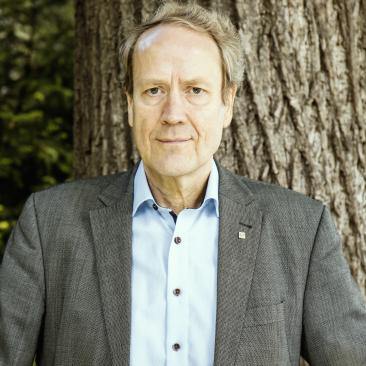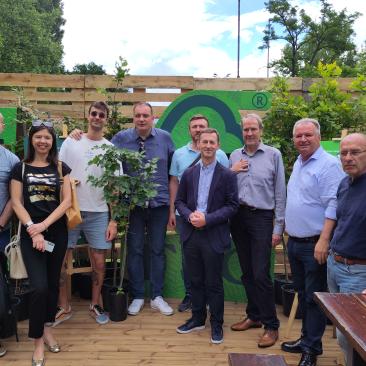
About Kim Carstensen
Kim Carstensen has been the Director General of the Forest Stewardship Council (FSC) since October 2012.
He is a recognized global leader within the environment and development sectors. Prior to joining FSC, Mr. Carstensen managed FairGreenSolutions, a consultancy that helped link the concepts of ‘Green Economy’ and sustainable development for clients in the Global South. His strategic approach comes from a long history of global leadership, most recently as the leader of WWF International’s Global Climate Initiative, and previous roles as CEO of WWF Denmark and Deputy Chairman of the Board of Denmark’s Official Development Assistance Agency (Danida).

Meeting the local stakeholders
Mr. Carstensen was a guest speaker during the recently organised Greencajt sustainibility festival in Zagreb, where he highlighted some of the little known facts about long term sustainable forest management in Croatia! Festival visitors also learnt the fact the Croatia is first country in the world in terms of the share of FSC-certified forest area - 74% of all forest area of this country is already FSC-certified, and has been for over 2 decades.
Many local stakeholders from both forestry and wood processing fields came to the festival to listen to his speech and had a chance to greet him in person and share their perspective regarding the trends and challenges they are faced with.
Interview with Kim
In the honour of Kim's participation at the Greencajt festival of sustainibility, Green.hr magazine published an extended interview. An exert from the interview can be found below, while the entire piece in Croatian language may be read here.
-
What role do forests play in maintaining climate stability and protecting ecosystems and people?
Kim: Forests are a key pillar in the fight against climate change, they provide important ecosystem functions, such as carbon storage. Forests really help us to adapt to climate changes, they participate in regulating precipitation and temperature. At the same time, the biological diversity of forests is important for human survival, it provides us with food, medicine, energy, clean air and water, safety from natural disasters, but it is also a source of recreation and cultural inspiration. Deforestation and forest degradation seriously impairs their ability to play these vital roles, both globally and locally.
-
There are more than 150 million hectares of FSC-certified forests. How does sustainable forestry contribute to the preservation and protection of these vital ecosystems?
Kim: Sustainable forestry, as verified by the FSC certificate, plays a key role in adapting to climate change and mitigating its consequences. By maintaining rigorous standards for forest management, it is possible to promote forest conservation, biological diversity, implement good practices, but also respect local communities and the entire ecosystem. These aspects are crucial in the fight against climate change and biodiversity loss, and FSC's 30 years of experience in developing the most rigorous standards for sustainable forestry create the best possible basis for this.
-
Croatia is highlighted as an example of good practice in forest certification, as many as 74% of Croatian forests are FSC-certified. What lessons can other countries learn from Croatia's approach to forest management?
Kim: Croatia is the first country in the region that requested FSC certification for all state-owned forests back in 2002. Following her example, neighboring countries, such as Slovenia, Bosnia and Herzegovina and Serbia, later did the same. With more than 2 million hectares of FSC-certified forests (74 percent of all forest areas in Croatia), Croatia ranks first in the world in terms of the relative share of FSC-certified forests – a fact that Croatian citizens can be particularly proud of!
With the majority of its forests certified according to FSC standards, Croatia shows the world that it meets the highest global standards for sustainable forest management and that it curbs the trend of deforestation and forest degradation. Such an approach allows Croatian forest managers a better position on the international market and proves that Croatia will be ready to meet the requirements created by the new European Union Deforestation-free Products Regulation (EUDR). At the same time, the Croatian approach guarantees all citizens that their forests will continue to be well managed and that they, as users, will retain their recreational and cultural values.

